Gerber Assert hits the sweet spot in the pocketknives market that is full of 3” blades with a weight under 4 ounces. It has just the right dimensions and weight to fit into the pocketknives category. It is ultra-lightweight and offers the usability and practicality of a regular folder with its slim profile and construction.
Gerber is an American cutlery company established in 1939 and produces multi tools, cutting tools and outdoor gear. The company has a vision for an innovative product-driven future and its produces are consumed by hunters, soldiers and outdoor enthusiasts. Gerber Knives produces mission-essential knives that are task-specific and help people achieve certain tasks. Whether you want to explore, hunt, survive, or defend yourself, Gerber delivers the task head-on.
At the same time, does not compromise on its quality of features, fit, finish and performance either. Lets look at it in more detail at Gerber Assert Review.

Gerber Assert Review
Gerber Assert is a lightweight, compact carry EDC folding knife with an S30V drop point plain edge stainless steel with a stonewash finish and flat grind, extending up to 2.98”. It has an ergonomically shaped textured handle made out of green glass-filled nylon (polymer) with a honeycomb interior for added strength and durability.
The overall length of the knife is 6.95” with a handle length of 3.97”. It weighs only 1.87 oz. with adjustable dual thumb studs for fuller deployment, an ambidextrous pivot lock and tip-up pocket clip configured for right and left hand.
Key Specifications of Gerber Assert
Blade of Gerber Assert
The flat ground drop point works well in conjunction with ultra-lightweight pocketknives, since it is the most useful in easy carry EDC knives. The grind lines go pretty high up the Assert and end just below the opening of the thumb stud. It gives the blade cutting-edge slicing geometry combined with the super thin 0.09” blade stock thickness. The width of the blade 0.90” is also pretty great and provides enough surface area to make specific and precise cuts.
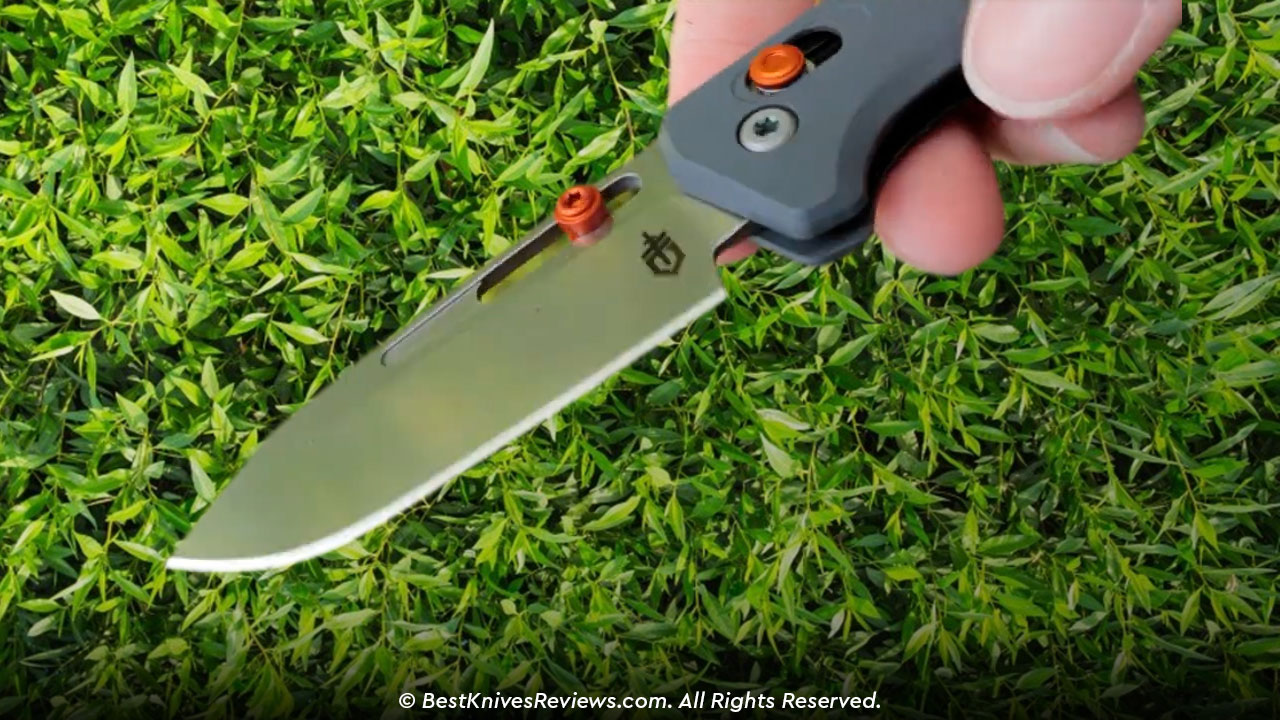
The CPM S30V powdered metallurgy alloy is a high-performance stainless steel that is also highly corrosion resistant with excellent edge holding for a really long time. The premium quality steel as the choice for blade with excellent balance of performance and functionality justifies its price above $100.
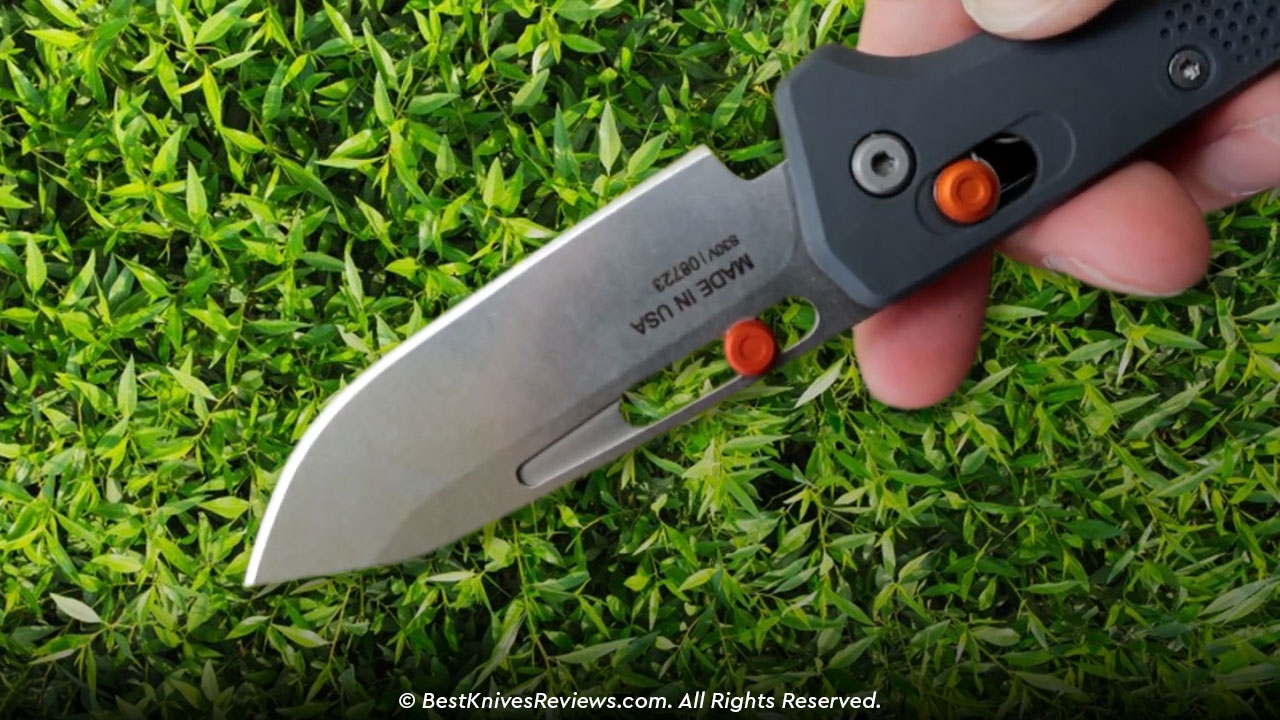
The blade has a much muted stonewash finish with the Gerber shield logo etched onto the side, along with the steel type, serial number and ‘Made in US’ along the other side very clearly.
The 2.98” blade length with a cutting edge of 2.80” comes with a sharpening choil at the base of the blade. The spines profile maintains as much thickness as possible as it reaches the tip, only to taper down when the spine turns down to maximize blade strength. However, the factory edge on Gerber Assert is not so fine. It is something that many Gerber products lack.
The primary bevel flows from the forward edge of the spine across the blade and into a diagonal plunge line that terminates behind the scales. This leaves a steep sharpening choil with a bit of beard where it ends. It is almost unnoticeable, and allows you to choke up the knife. There is also jimping along the spine to assist your index finger and thumb to slide up comfortably.
Handle Ergonomics of Gerber Assert
Gerber Asset sports polymer or glass-filled nylon scales with honeycomb interior over nested stainless partial liners. That means that the liners extend only as far back as about the forward tip of the pocket clip. They are just there to support the pivot lock mechanism, the stop pin, the phosphorus bronze washers, and to contain the crossbar lock pin. Apart from that, the knife is just polymer handles supported by hourglass-shaped standoffs.
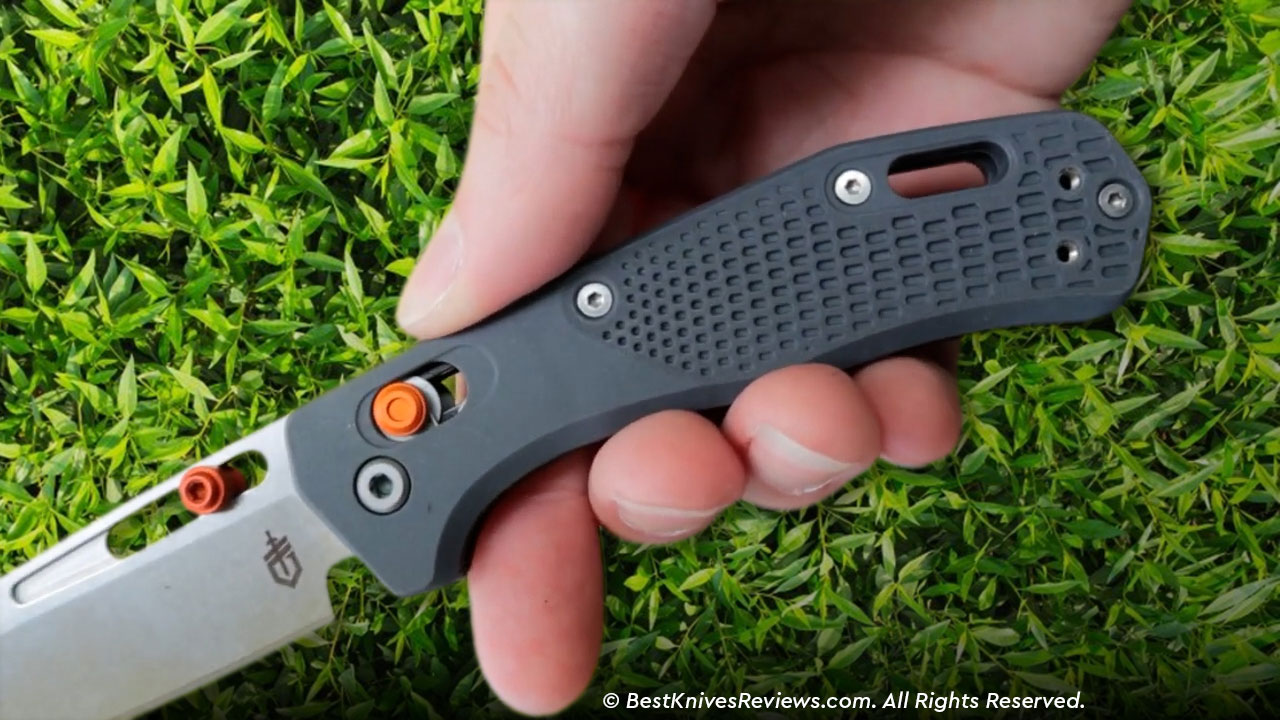
The handle width of 0.90” with a thickness of just 0.42” adds to the knife being lightweight. The texturing on the scales further adds to the ergonomics of the handle. The checkered texture also expands in width as it travels towards the handle’s rear end. It then wraps around the oval-shaped lanyard hole situated between two standoffs at the handle’s rear.
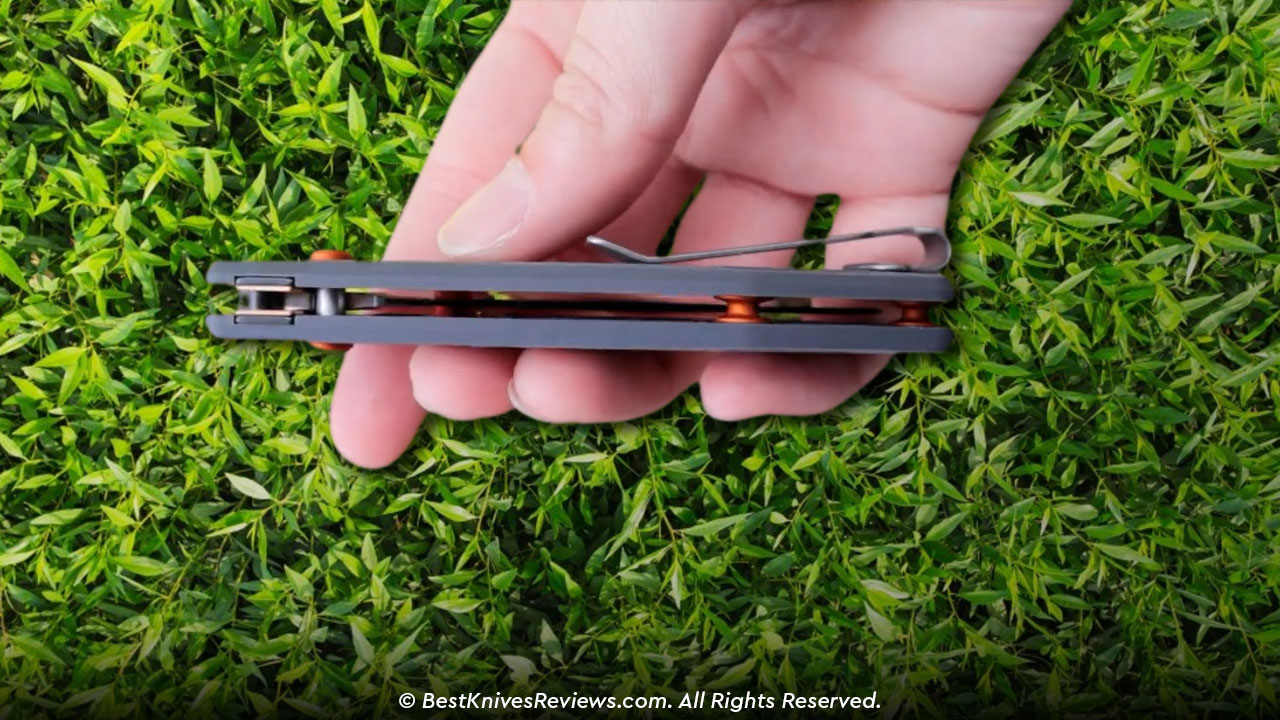
The steel liners that peak out from the scales from the bottom of the handle and from the top make the washers visible. They are phosphorus bronze, so they are self-lubricating and can break in with use over time. But these washers are not the regularly rounded off ones. They have a rather large surface area for better pivot support, and are held in place with a stop pin and the pivot to prevent them from turning.
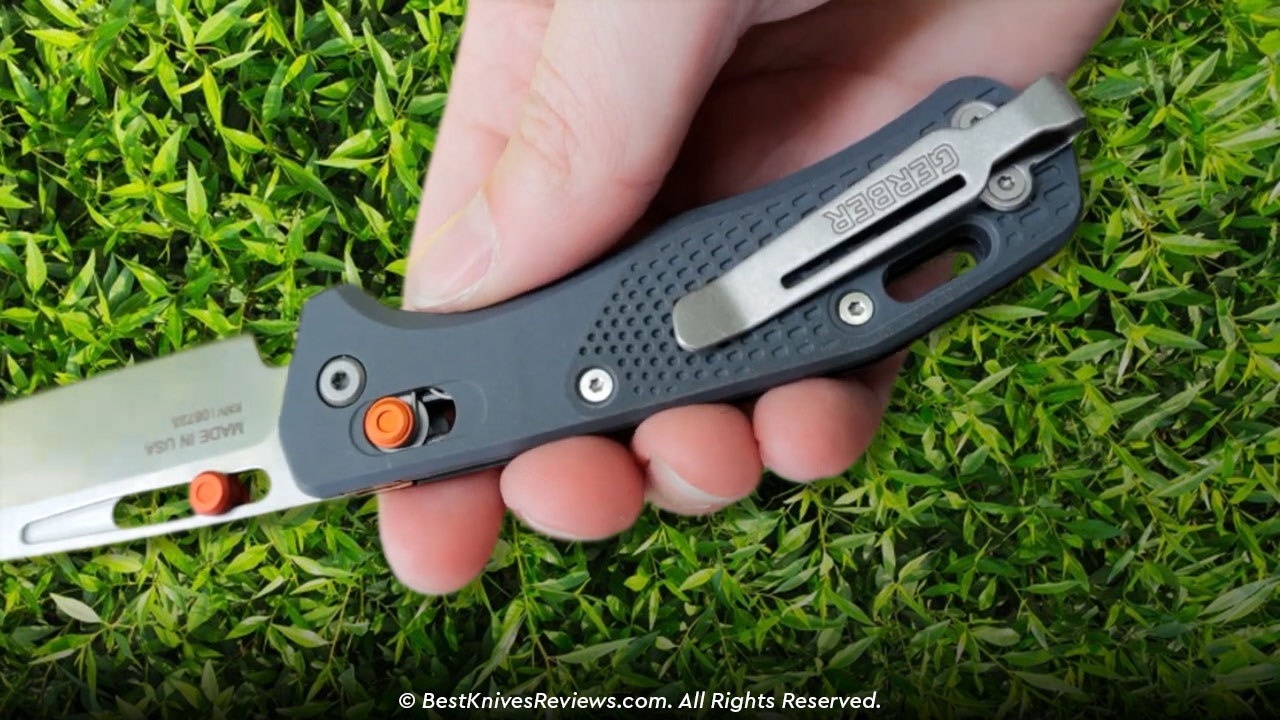
The Assert is held together by a series of insert Torx screws with three T6 screws on each side of the scales. The forward one screws into the liner and the rear one screwing into the standoff with the Torx screws in the pivot. One side of the pivot has a T10 and the other side has a T8. The T8 is the one that moves while the T10 stays still. It is held in place by a pivot barrel keyed into the liner. That makes the pivot smooth, blank, and even decorative.
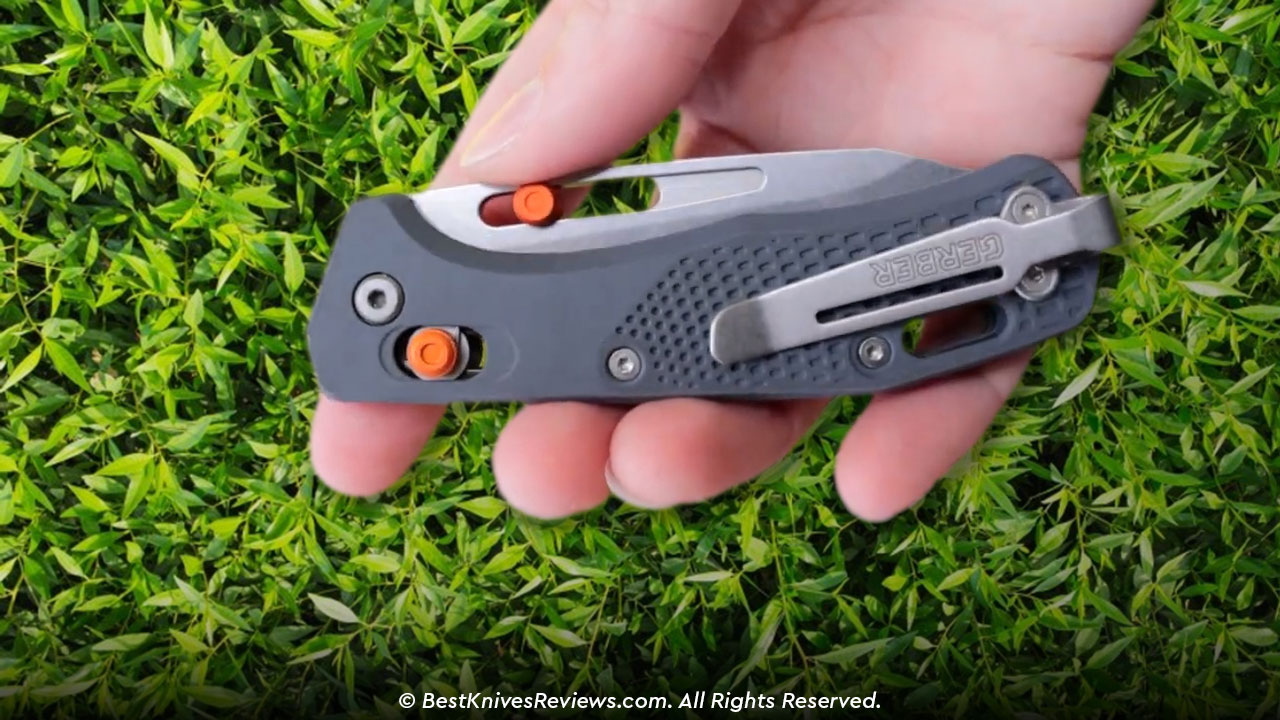
Gerber Assert comes with a deep carry bent steel pocket clip that is ambidextrously tip-up and configured for left and right hand carry. It is secured in place with two horizontal screws. The pocket clip, the reversible thumb stud and the crossbar style lock makes it easy to carry in either hand.
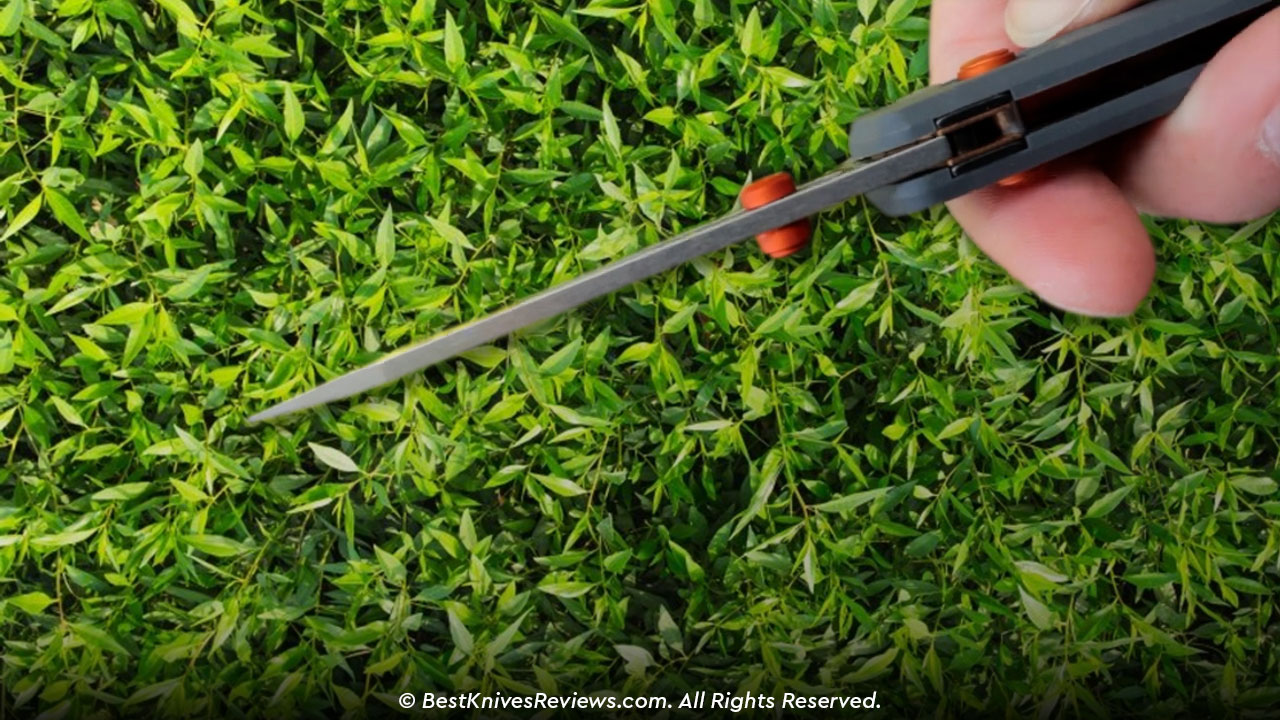
Although, the glass-filled nylon scales are not as precisely machined as the G10 scales are, the fit between the scales and the liners is great. The recess countersunk body screws are also nicely done. It holds the entire knife together well, with the blade sitting perfectly straight between the liners when open and closed. It also does not wonder when you adjust the pivot tension. The oversized washers and a lack of latent detent tension on the blade enables it.
Deployment & Lockup on Gerber Assert
Assert utilizes Gerber’s Pivot Lock that functions like an Axis Lock. It uses a bar that is accentuated by two springs sliding atop the blade tang to lock the blade in place. It also creates detent pressure in a closed position and the blade is located in the open position by an external stop pin anchored to the liners. There is a notch cut in the back of the tang, and when you open the blade the springs force the bar onto the notch. The stop pin locates the blade to increase reliability.


The dual ambidextrous thumb stud deployment on Gerber Assert runs parallel to the spine. The thumb studs are adjustable, removable, and asymmetric. The stud is longer on one side than the other with a single Torx T8 fitting on the long side of the groove. It makes it easier to loosen the thumb stud screw to adjust its position, along with reversing its direction if you are left-handed. Or, you can remove the thumb stud entirely if you want to use the fuller groove to open the knife. However, that will require two hands to open the knife.
Once out of the box, the thumb stud came positioned one-third of the way forward from the rearmost position in the fuller, and the action was mediocre. It takes some time adjusting to the stud. But by that time, you can move the stud all the way to the rearmost position to maximize thumb pressure leverage placing it as close to the pivot as possible.
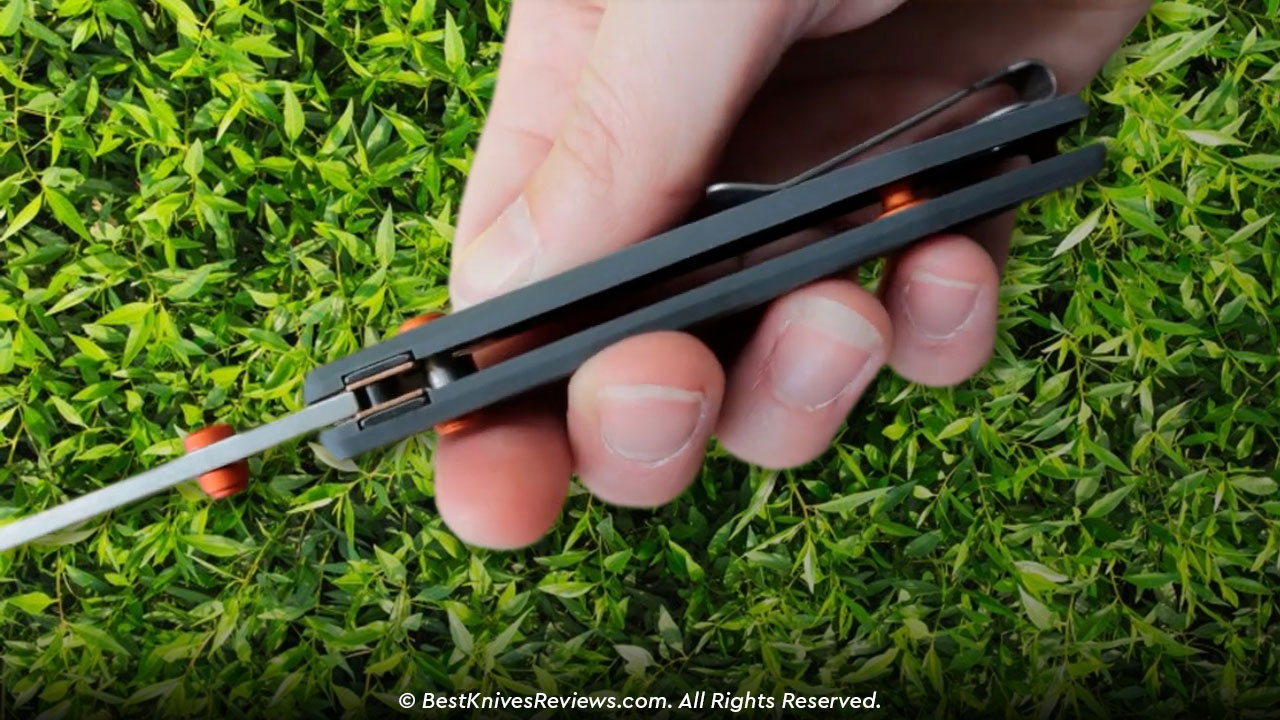
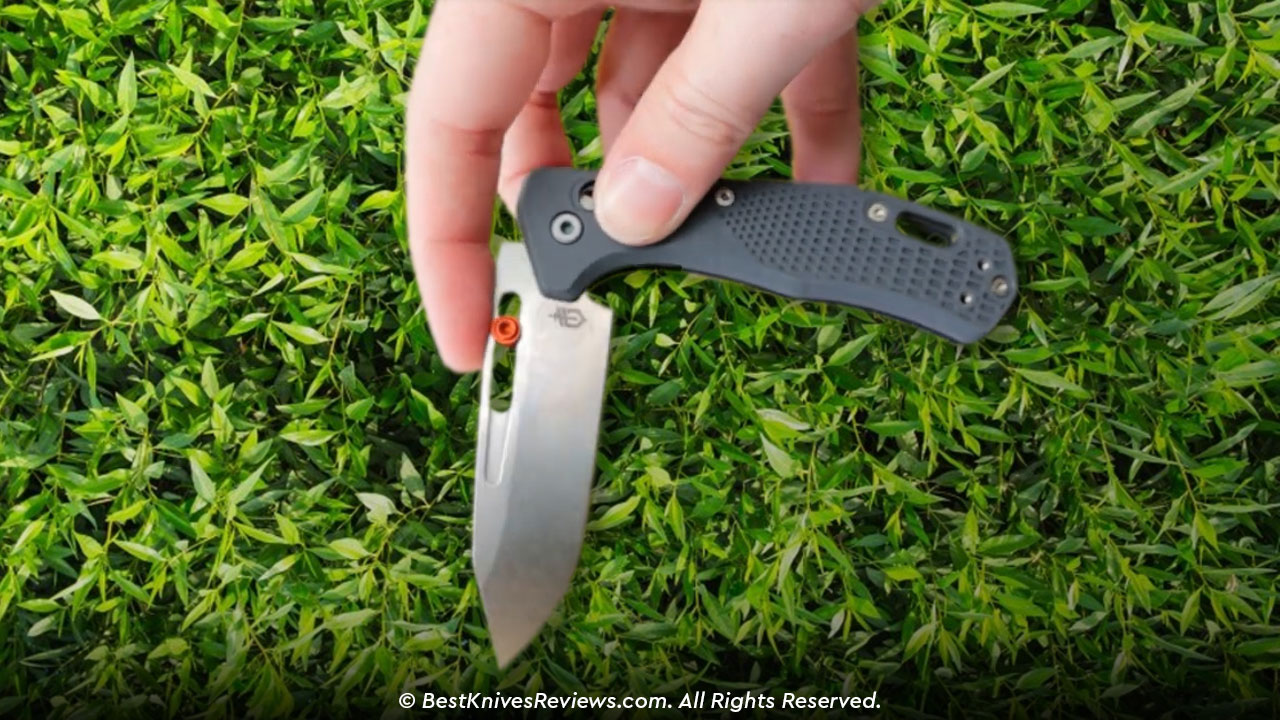
Loosening the pivot screw about half a turn dials in the action to nearly perfect. That is, it would not drop shut of its own accord from weight. This is also because the blade is very light and on washers not on bearings. But the thumb stud deployment and pivot together is very light and easy to use. It makes a satisfying snap when you close it, almost making it addictive.
The good news is that the adjustment of the thumb stud is only done once. You are less likely to do it again once you get the hang of it. It is indeed a pretty neat level of adjustment for such a lightweight pocketknife. It can also become adaptable to different kinds of hands very easily.
My Experience with Gerber Assert
So once you get used to the thumb stud adjustment, it gets pretty easy to use. It does not fiddle or get in the way of any tasks. It is in fact a great knife when it comes to practical use and performance. It carries well with just a weight of 1.87 ounces and does not even feel like you are carrying anything.
The pocket clip can also be used as a money clip and is finely finished. It is wide at the top of a pocket when carrying, but with a nice angled tip for easy ingress and great tension. So it will not slide out of your pocket easily. There are also no strange protrusions when in the pocket or in the hand. It takes little pocket real estate.
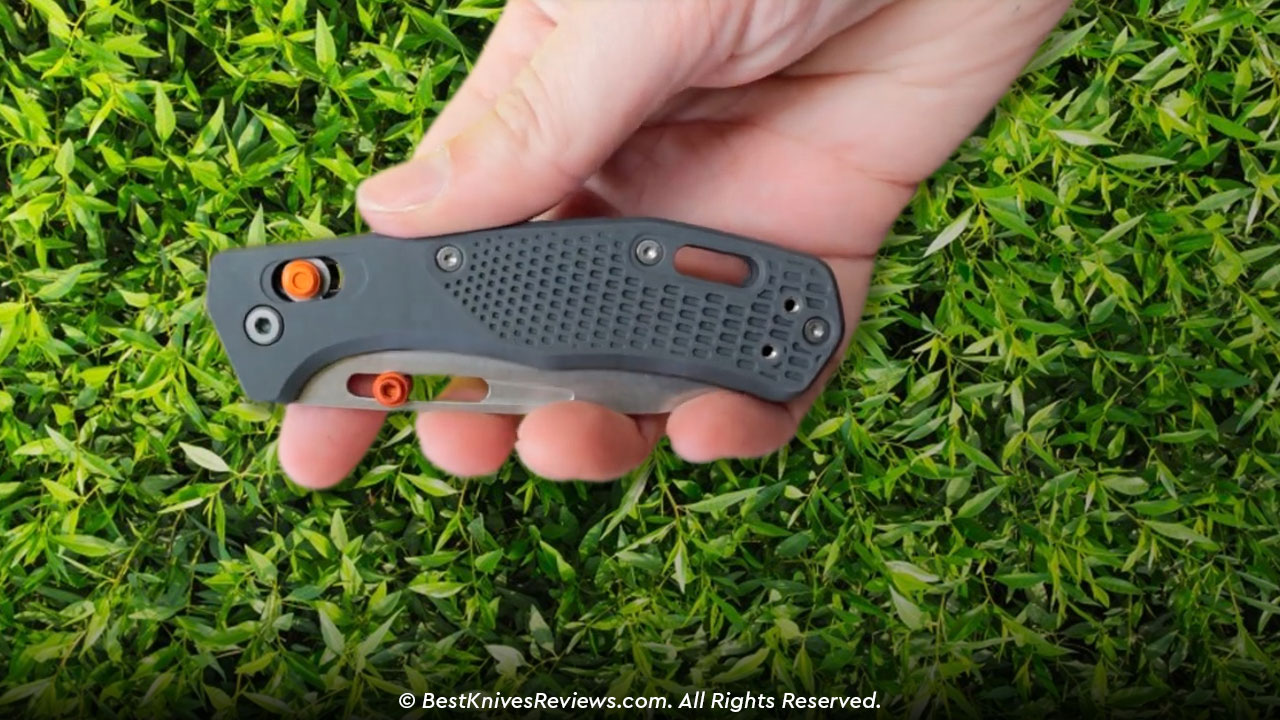
The ergonomics of the textured polymer are very strong on Gerber Assert. The handle features a double-bump palm swell with a pronounced forward finger guard for secure four-finger grip. The handle is quite grippy yet smooth and comfortable. You can easily choke it up and use it for extended period.
However, the knife has no jimping on the spine, but that does not hinder its ergonomics. It is not even on the spine in place of the thumb ramp. It has smooth surfaces everywhere. And even though it is thin and lightweight, it is still a breeze to carry and use.
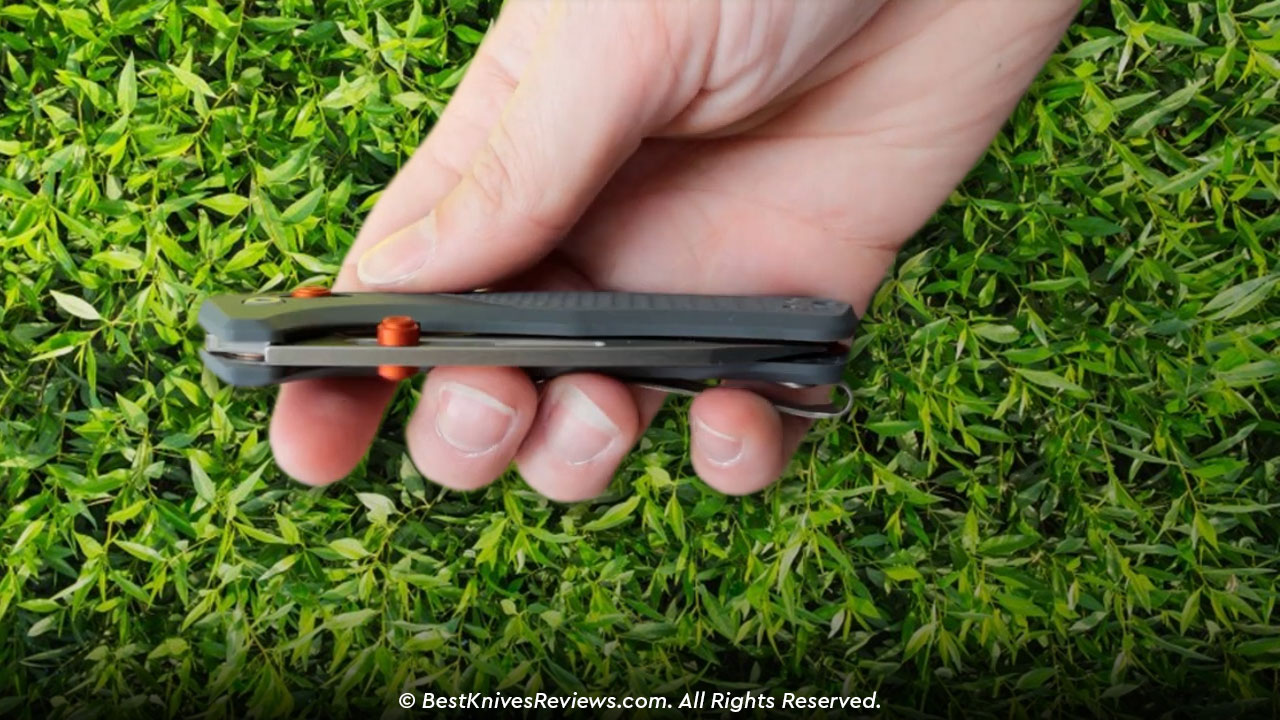
The blade profile is also perfect. The high flat ground drop point with a thin blade stock cuts like razor. It easily slices through paper, envelopes, packages, cardboard boxes, plastic and bubble wrap; even zip ties, clothing bags, ropes, rubber hoses and tape, etc. It is not easy to sharpen but also does not require frequent sharpening. However, the sharpening choil is very steep and tall. It tends to trap whatever you are trying to cut between it and the handle when you hold the blade at a certain angle.
Maintenance and disassembling the knife is complicated. It is due to the washers and pivot lock setup. You have to be really careful while disassembling it to clean and avoid losing the springs that are under tension just to get everything to line up. However, the flow-through construction of the knife with the standoffs at the rear makes it easier to blow compressed air and drop a little oil in the pivot.
Pros & Cons of Gerber Assert
PRO’s
Con’s
Comparisons
Gerber Assert vs Benchmade Mini Bugout
The $150 Mini Bugout, also with a blade less than 3” of S30V with almost the same stock thickness cuts close corners with Assert. However, the scales of the Mini Bugout are not too soft. But the CF-Elite handled version of the Bugout has even stiffer scales, so we’ll cut Mini Bugout some slack. It is also half an inch shorter than Assert and weighs only 1.5 ounces, also falling in the ultra-lightweight category.
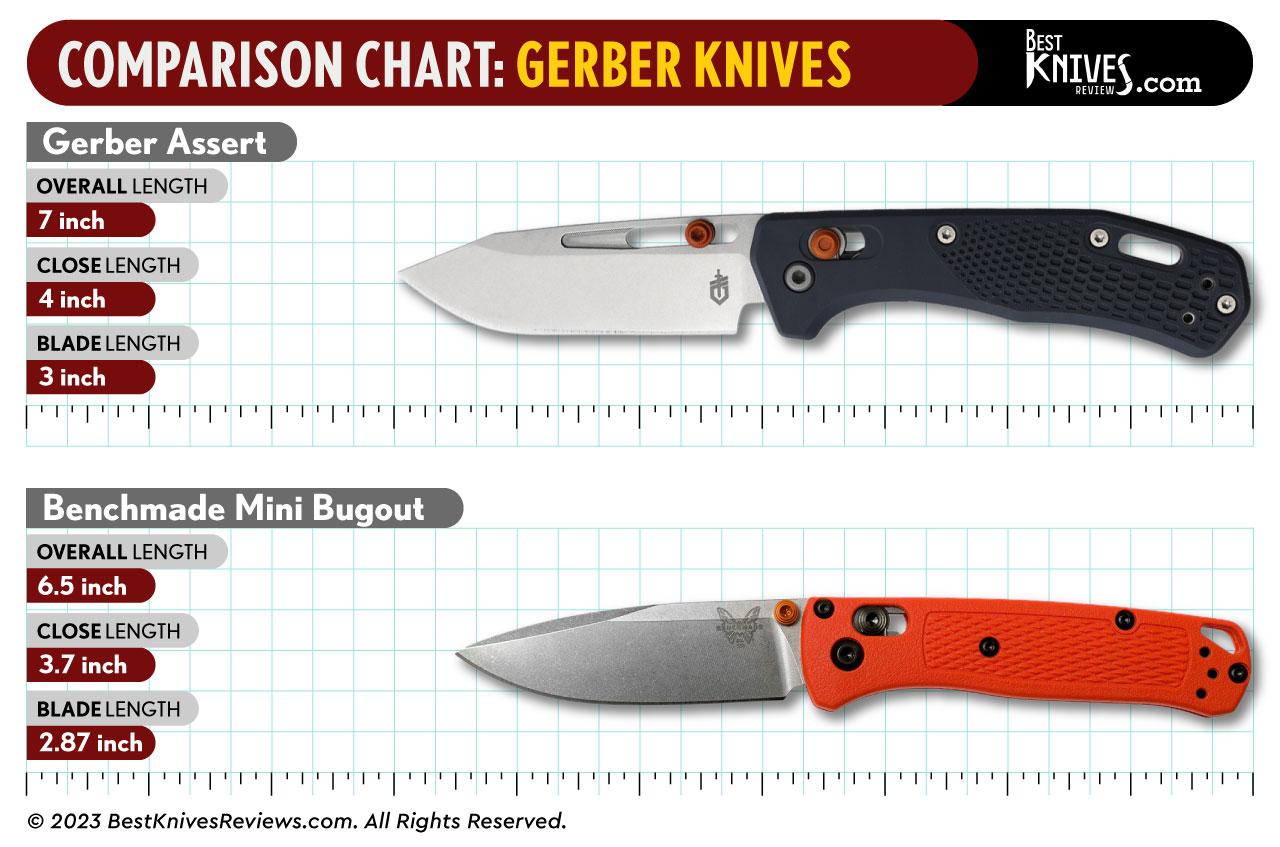
The sliding lock action on the Bugout is however, better than that on Assert. It is much smoother and less complicated. But overall, both the knife fall on the same spectrum when it comes to good EDC knives. The Bugout costs $150, which is lesser than Assert and may win in the EDC market against Assert. The competition is tough.
Gerber Assert vs Hogue Deka
The Hogue Deka can also be considered as a better value for money knife than our Gerber Assert. It costs $135 with a CPM Magnacut blade. It measures 3.25” with a thicker blade stock thickness of 0.11”. It features a long thin clip point blade shape.
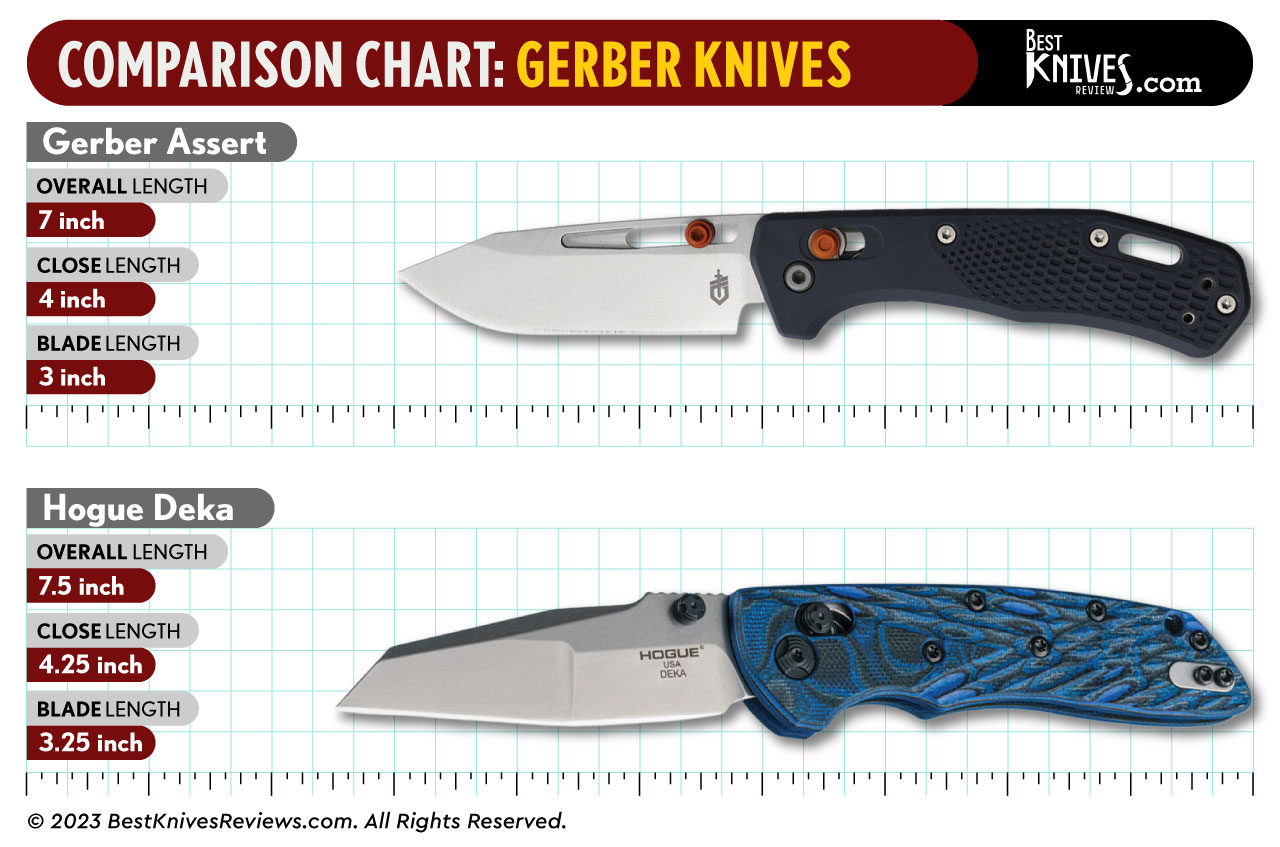
The textured bright blue polymer handles offer excellent ergonomics and weighs 2.1 ounces. The Deka costs even lesser than Bugout and Assert with better steel and more saving. So it too gives tough competition to Assert.
It is also available in upgraded CPM 20CV version for just $166, still cheaper than Assert. It features G10 handles but weighs 2.39 oz. but still under the retail price and performs better.
title
Conclusion: Gerber Assert Review
The Gerber Assert is a really good EDC knife. Although it is super lightweight with a thin overall profile, it offers excellent ergonomics and performs really well. The only problems lie with adjusting the thumb stud and the difficulty in sharpening the blade. But these are not very big issues and does not render the knife bad. But some people may find it as a discomfort.

The knife is really easy to carry with both right and left hand carry that also acts a money clip. And although it takes space in the pocket, it holds really well and it does not feel like you are carrying anything.
The blade profile is excellent and the handle also works really well. But when compared with Bugout and Deka, the Assert had some tough competition when it came to price.